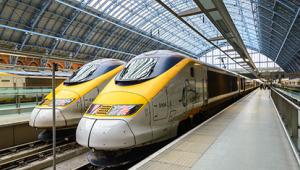Analysing the sale, the National Audit Office said the sale in March met the objective of maximising taxpayer proceeds and represented value for money.
However, the total taxpayer spending on the high-speed channel tunnel line, including High Speed 1 link to London, was over £8bn. Direct financial investment in Eurostar estimated by the NAO to be around £3bn, meaning that there was a loss of over £2.2bn.
The timing of the sale, agreed in 2014, was primarily driven by the desire to sell prior to the 2015 election, the NAO concluded.
This is despite a forecast increase in Eurostar’s profits from 2016 once it has introduced new higher-capacity trains.
Although ministers considered waiting to sell until after the new trains were introduced, it was decided any delay would come with uncertainty and risks.
Auditor general Amyas Morse said the government had prepared well for the sale of Eurostar and the sale process was run effectively.
“I regard the sale as value for money,” he said.
“This case illustrates some general lessons for government as it embarks on an unprecedented asset sales programme forecast to exceed £62bn over this Parliament.
“These lessons include: the need for detailed business cases in support of the decision to sell; objective and robust valuations to decide if, and when, to sell; and getting good value from advisers.”
The sale price of £585.1m for the 40% stake was almost double the government’s central valuation of £305m, while Eurostar paid £172m to redeem the UK government’s preference share, created to pay a dividend, following negotiation with the company and its other shareholders. The preference share was created when the company was incorporated in 2010.
Responding to the report, a Treasury spokeswoman said: “We welcome confirmation from the National Audit Office that the government sale of the UK’s shareholding in Eurostar delivered a good deal for British taxpayers – raising a total of £757.1m to help reduce our national debt – and with a process that was well-run and effective.”



















